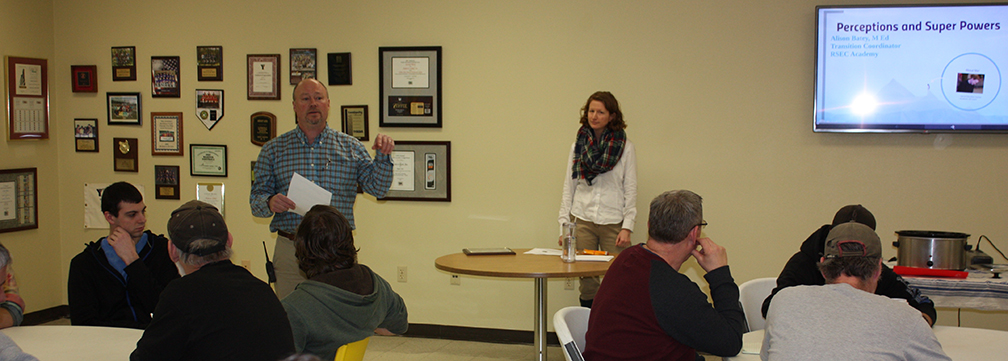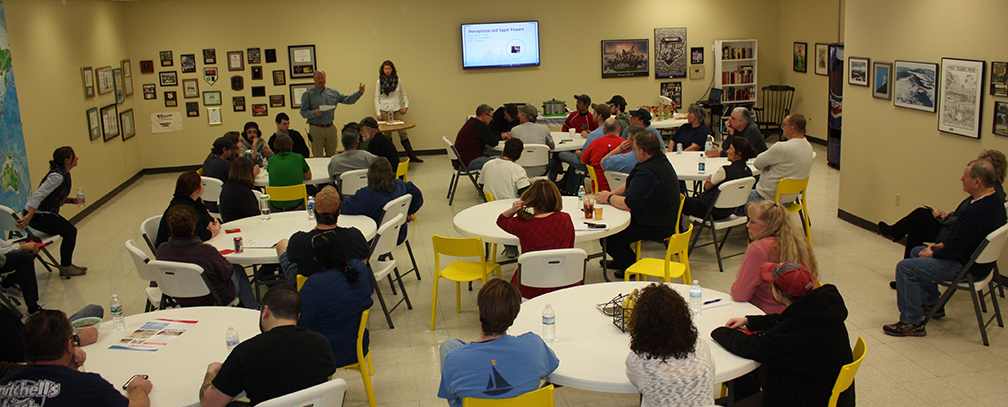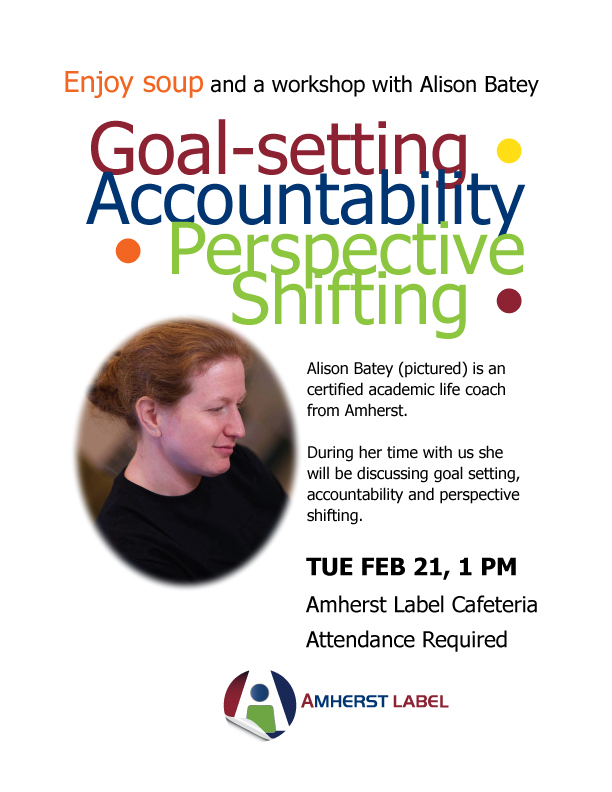
Could achieving goals really be as easy as pie? Here’s the 4-point premise discussed today at a Soup & Seminar program at Amherst Label.
- Make a pie chart with eight slices; one for each of the following: Family, Friends, Fun, House/Home, Growth, Health, Money and Work.
- Rate each slice on a scale of 1-10, 10 indicating that you are super happy with that area.
- Choose one slice you could improve in a week if you had a “well-formed action” plan.
- Commit to improve that area by one point, for example from an 8-point happiness rating to 9 points. Get an Accountabili-buddy and report back in a week.
Broken down into these steps, attaining goals seems so manageable. One step at a time.
Amherst Label hosted Alison Batey, M.Ed, life coach, for a lunchtime seminar today on goal setting and perception shifting. Alison encouraged us all to look at our lives/look at our choices as the popular adage goes. Her program promotes incremental improvement—one area, improved by one point, in one week. “1-1-1,” she calls it.

One of our printers volunteered that he rated all his slices 8. Seems like a contented guy! One person (me) admitted fun was her lowest score, 7. How do you get serious about improving fun? That is what I will be pondering.
But two employees jumped in with 1-1-1. Our ace customer service person decided to clean out her spare room thereby making her one point happier with her Home/House pie slice. A co-worker wanted to improve her Family slice by visiting her son out of state this coming weekend. Hooray for these learning individuals.
Around Amherst Label, there are reminders to “Learn Something New Everyday.” Today we learned to stop and take stock of our situation, get perspective, commit and enjoy the benefits of improving. This echoes our Painted Picture strategy for improvement.
 The first part of the session dealt with a method to diagram a disagreement using a Box 4 approach. Box 1 is my reaction. Box 2 is the other person’s assumption. Box 3 is the other person’s reaction and Box 4 is my assumption based on their reaction.
The first part of the session dealt with a method to diagram a disagreement using a Box 4 approach. Box 1 is my reaction. Box 2 is the other person’s assumption. Box 3 is the other person’s reaction and Box 4 is my assumption based on their reaction.
For example, Box 1: A child screams for his 10th piece of candy on Halloween night. Box 2 is the child’s assumption that the parent is mean for denying the candy. Box 3 is the kid freaking out more, and Box 4 is the parent losing patience with the child. What if at Box 1 the parent decides to shift perceptions, use their “super power” and look at the child’s point of view? It’s pretty natural to want candy on Halloween and kids want to call their own shots. What if the parent said, “You could have one more piece now, but maybe it would taste better if you wait until tomorrow. You could have two pieces tomorrow or the one you asked for today.” This reframing gives the child a chance to participate in the decision and could lead to peace and harmony.
Nye commented afterward, “Eye-opening and informational, looking at our own perspectives and the other person’s perspective. It was a good reminder that we should not take things personally but remember to use our ‘super power’ to change our own perspective in order to make a situation better.”
